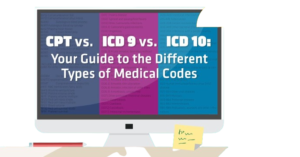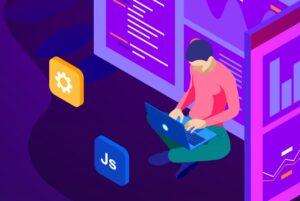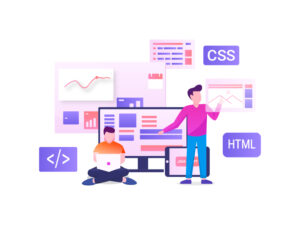Diploma Hospital Administration Management Courses
In the ever-evolving landscape of healthcare, the importance of well-trained professionals in diploma hospital administration and management cannot be overstated. This article explores the intricacies of hospital administration management courses, shedding light on the significant role they play in shaping the future of healthcare leadership.
Understanding Hospital Administration and Management
Differentiating between hospital administration and management
Diploma Hospital administration and management are often used interchangeably, but they encompass distinct roles within the healthcare system. While administration focuses on the overall coordination and functioning of healthcare facilities, management involves strategic planning and decision-making.
Diploma Hospital administrators are entrusted with a myriad of responsibilities, including financial management, policy implementation, and ensuring the delivery of high-quality patient care. Their multifaceted role requires a comprehensive understanding of both healthcare operations and business management.
The evolving role of Diploma hospital administrators
As the healthcare landscape evolves, so does the role of Diploma hospital administrators. Beyond traditional responsibilities, administrators now play a pivotal role in adapting to technological advancements, addressing community health needs, and fostering a culture of innovation within healthcare institutions.
Significance of Specialized Courses
Tailored programs for Diploma hospital administration
Specialized courses in hospital administration are designed to provide a focused and in-depth understanding of the unique challenges and intricacies of managing healthcare facilities. These programs equip individuals with the knowledge and skills necessary to navigate the complex healthcare environment.
Pursuing a specialized course in diploma hospital administration offers numerous benefits, including increased job opportunities, career advancement, and the ability to contribute meaningfully to the improvement of healthcare systems. These courses often incorporate practical experiences, preparing students for real-world challenges in healthcare management.
Core Curriculum
Overview of essential subjects covered in hospital administration courses
Hospital administration courses typically cover a broad spectrum of subjects, including healthcare policy, finance, human resources, and ethical considerations. The curriculum is crafted to provide a holistic education that prepares individuals for the diverse challenges they may encounter in their roles as healthcare leaders.
Case studies and real-world applications in the curriculum
A distinguishing feature of hospital administration courses is the inclusion of case studies and real-world applications. This approach ensures that students not only grasp theoretical concepts but also develop problem-solving skills by analyzing and addressing real challenges faced by healthcare institutions.
Accreditation and Certification
Importance of accreditation in healthcare education
Accreditation plays a crucial role in ensuring the quality and relevance of hospital administration courses. Accredited programs adhere to stringent standards, providing students with assurance regarding the credibility and rigor of their education.
Certifications and their impact on career advancement
Attaining certifications in hospital administration enhances career prospects and validates the expertise of professionals in the field. Employers often prioritize candidates with recognized certifications, as they demonstrate a commitment to ongoing professional development and excellence in healthcare management.
Job Opportunities
Diverse career paths after completing hospital administration courses
Graduates of hospital administration courses can pursue diverse career paths, including hospital management, healthcare consulting, and leadership roles in public health organizations. The demand for qualified healthcare administrators continues to grow, creating a plethora of opportunities for individuals with specialized education in the field.
Growth prospects and salary ranges
The field of hospital administration offers promising growth prospects, with opportunities for career advancement and increased earning potential. As healthcare institutions recognize the value of effective leadership, professionals with a strong foundation in hospital administration are well-positioned for success.
Industry Trends
Current trends shaping hospital administration and management
The healthcare industry is dynamic, and staying abreast of current trends is crucial for professionals in hospital administration. Emerging trends such as telemedicine, data analytics, and patient-centered care are reshaping the way healthcare institutions operate and require administrators to adapt to new challenges and opportunities.
Technological advancements in healthcare administration
Technology plays a pivotal role in modern healthcare administration. From electronic health records to artificial intelligence applications, administrators must navigate and leverage technological advancements to enhance the efficiency and quality of healthcare delivery.
Challenges in Diploma Hospital Administration
Addressing common challenges in healthcare management
Hospital administrators face various challenges, including financial constraints, regulatory compliance, and the need for effective communication across diverse healthcare teams. Addressing these challenges requires a combination of strategic thinking, adaptability, and a deep understanding of the healthcare landscape.
Strategies for effective problem-solving
Hospital administration courses equip individuals with problem-solving skills essential for overcoming challenges in healthcare management. By analyzing case studies and engaging in practical scenarios, students develop the ability to devise effective solutions and contribute to the overall success of healthcare institutions.
Testimonials and Success Stories
Real-life stories of individuals who benefited from hospital administration courses
To provide a tangible perspective on the impact of hospital administration courses, we share real-life testimonials and success stories. These narratives highlight the journey of individuals who, armed with specialized education, have made significant contributions to the field of healthcare administration.
Their career progression and achievements
From ascending the ranks in hospital management to spearheading innovative healthcare projects, the success stories of these individuals underscore the transformative power of hospital administration courses in shaping the trajectory of careers in healthcare leadership.
Importance of Networking
Building professional networks in the healthcare industry
Networking is a valuable aspect of career development in hospital administration. Establishing

















 Tally prime stands as a cornerstone in the realm of accounting software. Its intuitive interface, robust features, and seamless integration make it a favorite among businesses worldwide. As we explore Tally Prime, we’ll unravel its functionalities and outline the myriad benefits awaiting those who choose to master it.
Tally prime stands as a cornerstone in the realm of accounting software. Its intuitive interface, robust features, and seamless integration make it a favorite among businesses worldwide. As we explore Tally Prime, we’ll unravel its functionalities and outline the myriad benefits awaiting those who choose to master it.

























